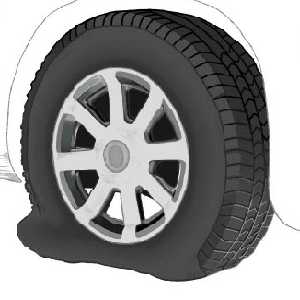How to sell yourself
Today’s edition looks at a common concern I hear from job seekers, with simple principles you can adopt now, to get better at selling.
"I'm just not confident at selling myself at interview."
But then it isn't about selling yourself, necessarily.
Employers want to understand what you'll be like to work with, how you'll solve their problems, and how you'll deliver against their expectations.
So then there's only two things to worry about:
1- Showing what you are like at work.
2- How you'll solve their problems.
You don’t need to worry about that point around expectations, because that’s a consequence of these two above.
And once you get into this mode of thinking, you can employ the same principles in everything you do.
Whether it’s how you write your CV, the dreaded cover letter, your LinkedIn profile or any type of written content.
Two additional things to remember - hiring processes aren’t mind readers; and when you nail these points you’re helping us see you as a candidate of choice.
Let’s dig deeper.
1- Showing what you are like at work.
The great illusion of social media is authenticity.
BE yourself at all times.
Yet what does that actually mean?
Especially when authenticity is contextual.
Here’s a crass, but true example to prove the point -
I’m as authentic in business as I am on the toilet. But never the two should mix.
Now of course you want to be yourself at interview.
You can call that authenticity if you like, but try to separate how you are at home, or how you are in a tough job search, from how you are when you do a great job for an employer.
That last one is how you’d be in employment, and it’s what you need to project at interview.
So that we can see how you’ll perform in the job.
Yes, looking for work is a shit show in this market. And yes you should own how you feel. But these feelings are temporary when compared to the continuum of your career.
While it may feel like faking it, to be your best professional self at interview, it isn’t - it’s a promise to your future.
2- How you'll solve their problems.
The good news is if you've solved problems before, whether that's managing a flight itinerary or delivering a turnaround project, you simply need to articulate this in a way that has meaning for them.
STAR is a helpful storytelling device here (situation task action result, maybe with a dash of learning).
If you’re familiar with STAR, don’t forget it has to relate to the question asked, specifically. If you’re asked how You contributed, STAR has to involve what you did.
I say storytelling, because stories are as much about how they are told as the content.
Show the you from 1. in your answers, be concise, and you’ll rarely go wrong.
As for understanding what their problems are, you can find out through research, interview preparation, their job description and the questions they ask. Make sure to ask clarifying questions if you don't know what they're getting at.
This should also be an advantage of partnering a recruiter in your application - we can help you prep so you can establish what might interest the employer.
Then, after the fact, think about the examples you gave, and use these as preparation for future interviews. It’s unlikely you’ll give the perfect answer the first time, so this is a lesson you can take forward - how could you give a better answer?
If you’ve been to multiple interviews, and they commonly ask the same question, consider why this is.
Is it missing from your CV? Add it in.
Is it a commonly demanded situation you have overcome? Talk about in content - others will have the same issues.
Is it around skills that are needed? Make sure your CV and LinkedIn profile contains these skills.
A job search is iterative, and a set of skills to learn.
Keep working on these areas, and you’ll continually improve - this alone will improve your odds, the more you do in a job search.
Most of all though this article shows one truth of sales.
Selling can be a consequence of what you’ve done, rather than the goal.
Get these points right, and your work will do the selling for you.
Thanks for reading.
Greg

